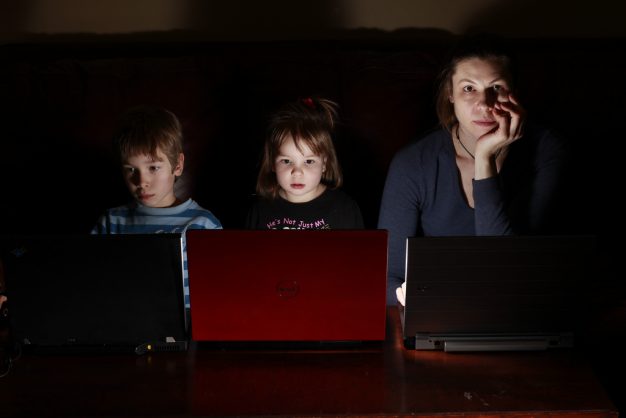
Unlocking tomorrow: the intersection of digital literacy, wellbeing and children’s rights
To thrive in the ever-evolving digital environment children and young people must gain digital literacy. But what difference does digital literacy make to children’s wellbeing and rights?
Over the past three years, ySKILLS researchers have used multiple methods to answer this question and explore the ramifications of the new evidence for European policy and practice. Here, the London School of Economics’ (LSE) Mariya Stoilova & Sonia Livingstone explain some of the findings.
The role of digital literacy for online risk and wellbeing
ySKILLS defines digital literacy broadly, covering knowledge and skills across four dimensions including technical/operational, information navigation, communication and interaction, and content creation and production aspects. The three-wave panel study with over 10,000 children aged 11-16 years, across six European countries showed that children’s skills are unevenly distributed and influenced by individual, social, and country-specific factors. Here is what helps children develop skills:
- As children get older, they tend to have better digital skills overall. But when it comes to specialised skills like programming or content creation, age doesn’t necessarily make a difference.
- Girls often excel in communication skills online, while boys typically demonstrate strength in technical areas. However, there’s no significant gender gap in digital knowledge.
- The more time children spend online, the better their digital skills, especially in communication. However, just being online more doesn’t mean that children’s skills will improve.
- How parents handle their kids’ online activities matters: being too restrictive can hinder skill development, while being supportive can help, albeit only weakly.
Regarding online risks and wellbeing, ySKILLS discovered that:
- Generally, enhancing digital literacy doesn’t necessarily heighten the risks of online engagement. Yet, there’s a notable exception: children skilled in content creation may encounter a higher exposure to potentially harmful content.
- There’s not much of a link between digital literacy, technology use, and psychological wellbeing. However, digital skills might moderate technology use and wellbeing.
- There is not a strong connection between digital skills and social wellbeing. Being better at communicating online can mean children feel more supported by their friends, but spending more time online might make them feel lonelier.
- Children’s digital skills don’t seem to directly affect how much they move around physically, but spending more time on the internet could mean being less active.
- Information navigation skills can help children do better in school, while content creation might lower their grades. Also, being better at communicating and interacting online can be good for school performance.
For a synthesis of all multi-method findings, see this overview from Leen d’Haenens and colleagues. So, what are the implications of these findings?
It’s time to act: crafting empirically driven guidance for policy and implementation
At LSE, we led the final ySKILLS work package on the Synthesis of results and recommendations for policies and practices tasked with the integration of findings (led by Leen d’Haenens), consulting children and developing a participatory toolkit (led by Bieke Zaman), crafting evidence-based recommendations for policy and practice (led by Eva Lievens) and translating these into action points for EU policy (led by Elisabeth Staksrud), and considering the implications for children’s rights (led by Sonia Livingstone). With a focus on key stakeholders such as pan-European policymakers, national governments, and educational authorities, our colleagues from the University of Oslo led by Niamh Ní Bhroin used the ySKILLS evidence to formulate recommendations (see the multi-media version here). They propose directing the efforts of these stakeholders along three primary avenues:
- Facilitating equitable and safe access for children to develop digital literacy by strengthening the harmonisation of policies and strategies aimed at skill enhancement. For this, addressing and mitigating vulnerabilities that hinder skill development is pivotal.
- Promoting uniformity in both the conceptualisation and assessment of young people’s digital literacy, as well as in the strategies deployed to foster skill development in practical settings. This necessitates addressing various skill dimensions, monitoring skill progression among all youth, and improving skill measurement methodologies.
- Enforcing regulations to amplify the positive impacts of digital media usage on the wellbeing of children. This may entail reinforcing internal market regulations to safeguard children’s and young people’s rights concerning communication, data protection, privacy, and shielding against commercial exploitation.
Turning these ySKILLS recommendations into action points for EU policy on children’s digital skills, Eva Lievens and colleagues outlined the necessary actions to ensure the digital competence and wellbeing of European children in the digital age. They urge EU policymakers to take a leading role by addressing three main directions:
- Conceptualisation, measurement and research: Invest in ongoing EU-wide research utilising the youth Digital Skills Indicator (yDSI) to gauge children’s digital skills across time and geography. Also, prioritise refining the yDSI to adapt to evolving technology and skill dimensions.
- Policies: Appoint a youth Digital Skills Coordinator to oversee digital literacy initiatives across various policy areas, directorate-generals, and instruments. Include the different digital skill dimensions and vulnerabilities in EU digital literacy policies. Foster close cooperation with Member States and monitor progress and implementation of commitments.
- Regulation: Prioritise enforcing the legislative framework, as digital skills alone may not mitigate certain online risks for children. Companies must design services to effectively address these risks. Invest in continuous monitoring and evaluation of the current policy and legislative framework’s effectiveness on children’s digital skills. Offer guidance on digital skills education.
These recommendations and action points can serve as a roadmap urging stakeholders in Europe to proactively engage with the findings and join efforts in supporting more digitally literate and resilient children and young people. But what does the new evidence say about the realisation of children’s rights?
Utilising digital literacy to enable the realisation of children’s rights
It has been particularly hard to establish the positive outcomes of digital literacy for children’s wellbeing and the realisation of children’s rights in the digital age. So, here at the LSE we mapped a child rights framework to the new multimethod findings asking: does gaining digital skills and literacy facilitate the realisation of children’s rights; and does the insufficient realisation of children’s rights impede children from gaining digital skills and literacy? The child rights mapping highlighted that:
- Digital skills and literacy represent both a valued outcome in themselves and also the means to the larger outcome of realising a wide range of children’s rights. Encouraging children to learn for themselves can be powerful. Stakeholders should be supportive of children’s interests, agency and participation.
- Digital skills and literacies make a difference to most if not all of children’s rights in the digital age. Any lack, or inequality, in children’s digital skills impedes the full realisation of their rights. It is insufficient to redress wrongs after the fact when it is feasible to anticipate the opportunities for and risks to children’s rights in the policies, provision and design of the digital environment.
- Digital skills and literacy cannot always guarantee children’s wellbeing in the digital world and joint responsibility from various agencies (educational authorities, governments, industry), is needed to ensure children’s rights are protected.
To conclude, in our journey through the dynamic realms of the ever-evolving digital landscape, it becomes increasingly evident that grasping the intricate interplay between digital skills and wellbeing is not just important—it’s pivotal. The ySKILLS project, with its extensive exploration and insightful findings, serves as a roadmap, unravelling the complexities that define the digital age’s impact on children and young people.
As we conclude this exploration, it’s clear that the journey towards fostering children’s and young people’s digital literacy and skills has the potential to contribute to improving their wellbeing and rights. The ySKILLS project invites all stakeholders – policymakers, educators, parents, and more – to actively engage with the findings and recommendations. By doing so, we can collectively navigate the complexities of the digital age, fostering a digitally literate and resilient generation that thrives in the ever-evolving digital landscape.
Dr Mariya Stoilova is a Post-doctoral Research Officer at the London School of Economics and Political Science (LSE) and an Associate Lecturer in Psychosocial Studies at Birkbeck, University of London.
Sonia Livingstone OBE is Professor of Social Psychology in the Department of Media and Communications at LSE. Taking a comparative, critical and contextual approach, her research examines how the changing conditions of mediation are reshaping everyday practices and possibilities for action. She has published twenty books on media audiences, media literacy and media regulation, with a particular focus on the opportunities and risks of digital media use in the everyday lives of children and young people
This post represents the views of the authors and not the position of the Media@LSE blog, nor of the London School of Economics and Political Science.
First published on the Media@LSE blog and republished here under Creative Commons Licensing.




